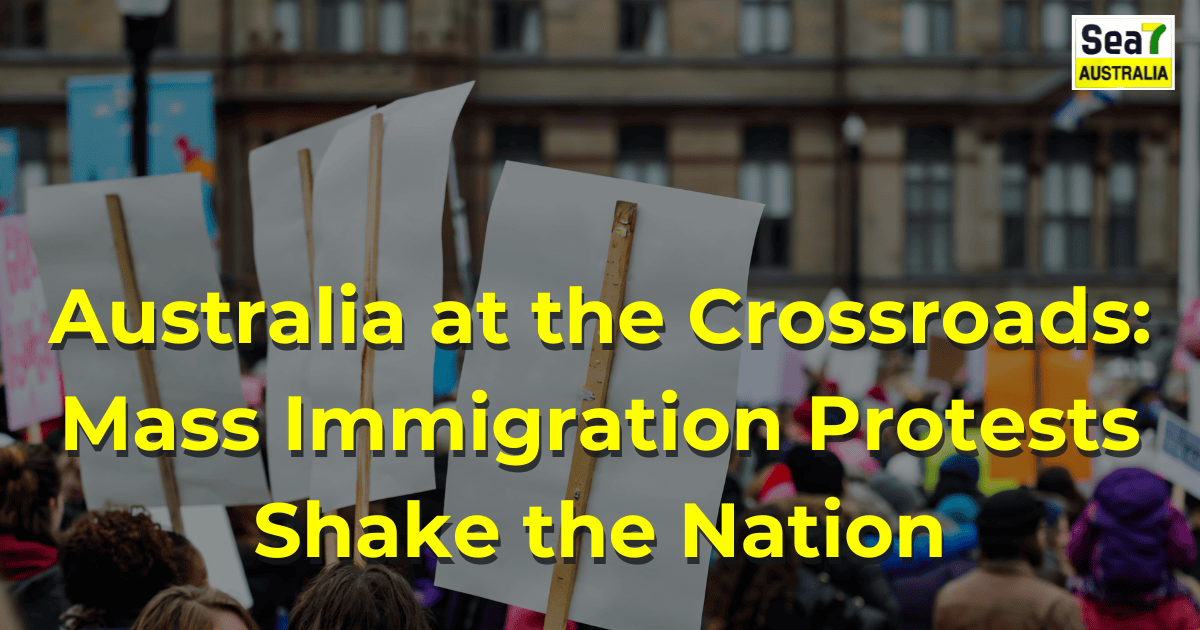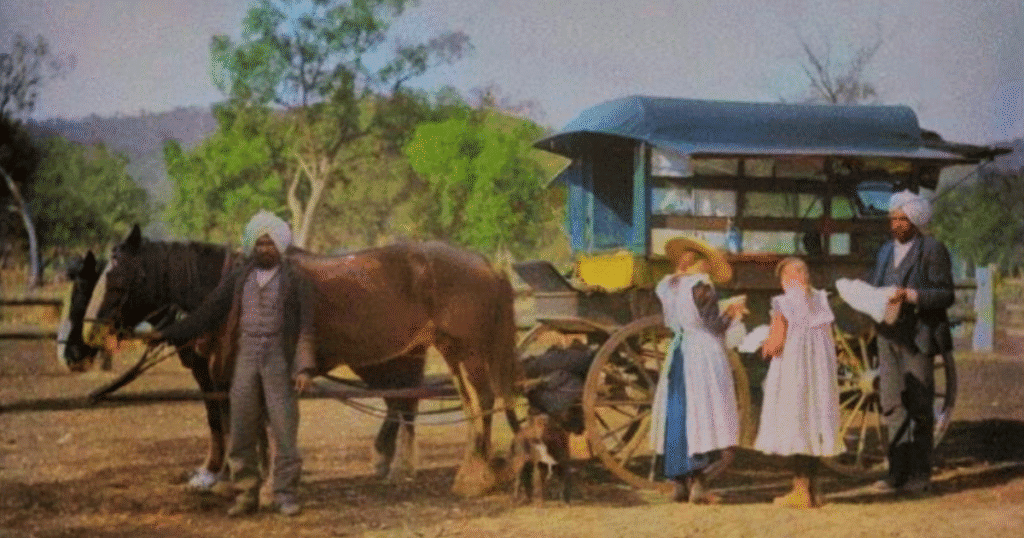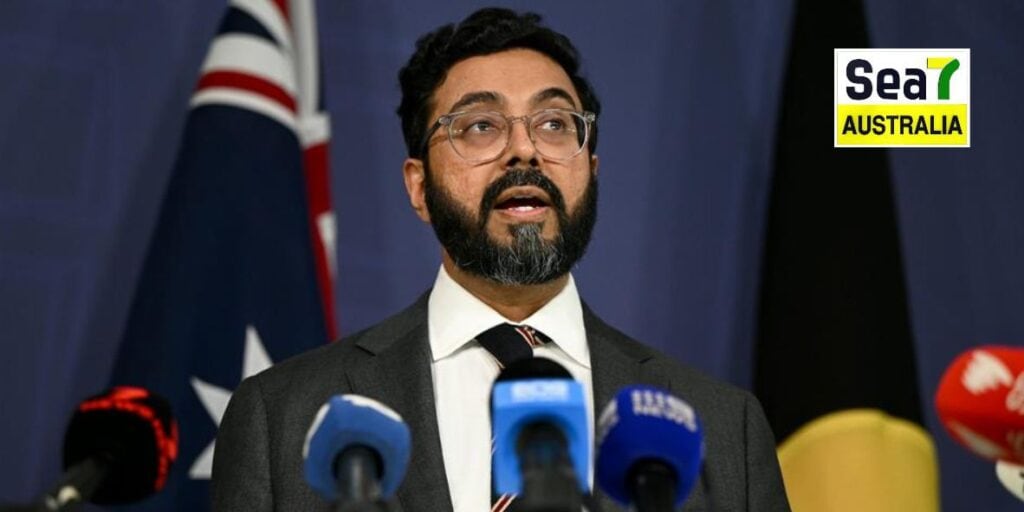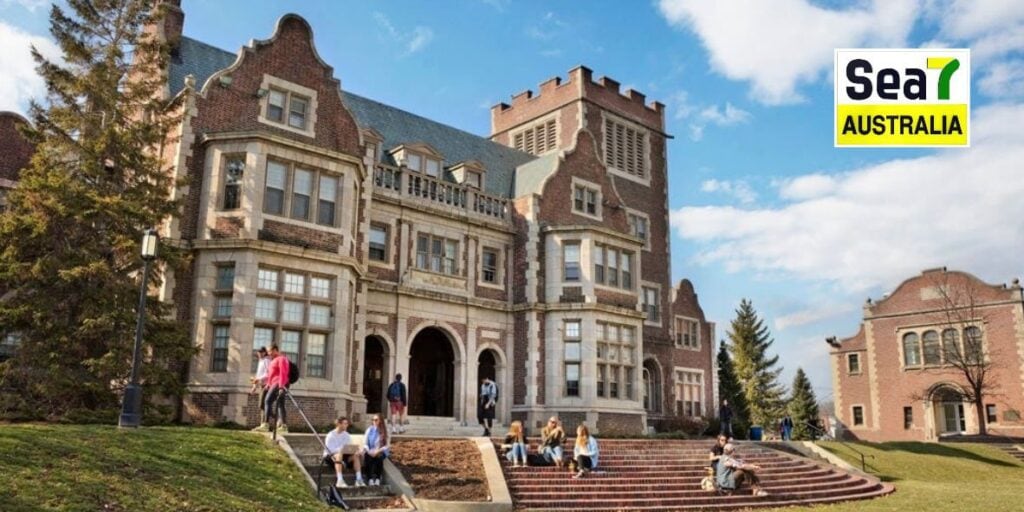Melbourne (Sea7 Australia Editorial Desk) – Tarandeep Singh Bilaspur
The 31st August Mass Immigration Protest – It is destined to be one of Australia’s most controversial and heavily publicized protests to date. Billed as the “March for Australia,” the nationwide rallies underscored a growing undercurrent of concern in some quarters as they set off contentious arguments about the rise of immigration, housing and the national identity.
Behind the slogans and signs are layers of stories — a response to economic pressure, manifested as cultural anxiety, and unintended consequences for Australia’s migrant communities.
Why There’s an August 31st Mass Protest Against Immigration
For months, online forums and social media platforms have been full of calls to rally against what its organisers describe as “unsustainable levels of mass immigration.” Supporters say record numbers of migrants have put an unsustainable burden on housing, healthcare and infrastructure. Slogans featuring on the flyers such as “Take Our Country Back” and “Stop Mass Immigration Now” have gone viral, gaining support but also provoking criticism.
Organisers say they have nothing against individual members of government, but critics say the tenor of the 31st August Mass Immigration Protest leaves the door wide open for the far right to rally behind the cause. Security agencies are on high alert, bracing for potential unrest as hundreds of protests get underway at the same time in Sydney, Melbourne, Brisbane, Perth and Hobart.
The Bigger Picture: Housing, Economy and Parting Ways
Australia is already experiencing one of its worst housing crises. Rents are soaring, young families are locked out of property ownership and competition for jobs is increasingly fierce in parts of the labour force. It has become easy for many to blame immigration.
But experts warn that the issue is not so simple. Migrants also make homes, run hospitals, open businesses and pay heavily into the tax system that supports pensions and public services. Economists say that structural issues — those that have been pressing on a city for a while — such as a supply bottleneck of land and underinvestment in public housing are the long-term forces that are really driving the pressure of today.
Still, perception often beats reality. The 31st August Mass Immigration Protest runs the danger of escalating/prejudicing social divisions by identifying migrants as the problem. The politicians are already drawn into camps: the government has condemned the rallies as destructive and the opposition is playing both to sections that want to take part and are against.
Storming Migrants at the Eye of the Storm
Some of the most appalling victims of the 31st August Mass Immigration Protest are migrant families, which are now caught in the crossfire. And those who arrived in Australia in hope of a better future are now greeted here with suspicion, casual hostility or open rejection. In the workplace and on public transportation, and in the neighbourhood, reports of discrimination are increasingly coming to the fore.
The debate will also leave psychological scars. Students, workers and new citizens fear that their place in Australia’s narrative is being openly challenged. Such a climate could set Australia back from decades of multicultural progress — progress that has made Australia culturally rich and economically strong.
A Test of Australia’s Identity
The 31st of August 2014 Mass Immigration Protest is more than just a political event, it is a litmus test about the way Australia sees itself. Will fear and exclusion be the nation’s choice, or will the U.S. stand as an example of strength in diversity?
Yes, Australians are justified in calling for more answers to housing shortages, for unclogged infrastructure and for the cost of living. But migrants cannot be blamed alone — it risks scapegoating, not solving, problems. History has taught that any society divided on ethnic lines does not often prosper.
Conclusion: Choosing Wisdom Over Fear
Having watched Australia’s immigration trajectory for generations, I know that this country has always been transformed by migration – from post-war Europeans to Vietnamese refugees; Middle Eastern immigrants to today’s influx of Indian students and professionals.
What is different about this debate is not the substance but the sheer rapidity of change and the sharper, more polarising rhetoric. The 31st August Mass Immigration Protest is a symptom of some valid fears, but also something that risks causing long-lasting injury. Migrants are not the cause of Australia’s problems; in many ways, they are part of the solution.
On 31 August Australians will walk. But the greatest journey is the one we make together — to a future that reflects who we are, where compassion overcomes fear, facts defeat fake news, and every worker is respected because their contribution has shaped Australia.
Read in Punjabi: https://sea7australia.com.au/16622/







